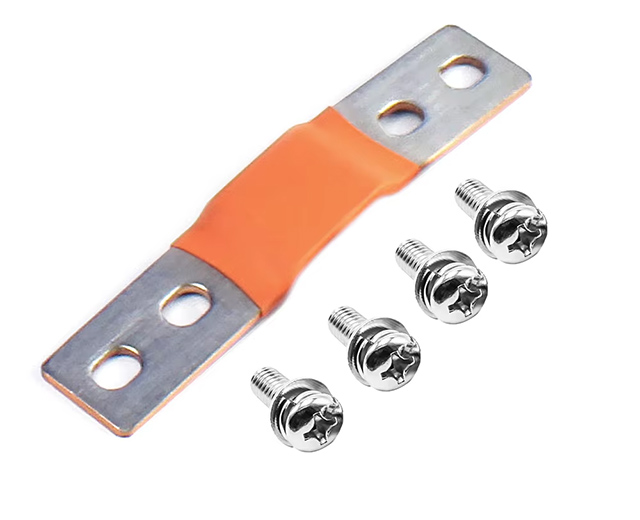2025-10-23 09:43:10
In modern electrical systems, busbars are essential for efficient power distribution and system stability. As industries demand safer, more compact, and maintenance-free designs, the use of insulated busbar and Flexible Busbar products has become increasingly popular. These innovative components ensure electrical reliability while enhancing protection and energy efficiency.

An insulated busbar is a type of electrical bus bar that is coated or wrapped with high-quality insulation material to prevent accidental contact and electrical faults. Unlike traditional bare Copper Busbar systems, insulated types are safer and more compact, making them suitable for high-density power distribution environments.
The busbar insulation provides excellent dielectric strength, reduces the risk of short circuits, and improves thermal management. This insulation can be made from materials like PVC, epoxy resin, or heat-shrinkable tubing, depending on voltage and environmental conditions.
A busbar insulator or busbar support insulator plays a vital role in securing and supporting the busbar system. It isolates live conductors from the grounded enclosure, maintaining proper spacing and mechanical stability.
Manufacturers of busbar support insulator components design them from high-strength epoxy, DMC, or ceramic materials, ensuring excellent resistance to heat, moisture, and vibration. As a busbar support insulator manufacturer, providing customized sizes and voltage classes ensures reliable system compatibility for various industries — from switchgear assemblies to power converters.
Enhanced Safety: The insulation prevents accidental contact and flashover.
Space Saving: Compact design allows for denser electrical layouts.
Reduced Maintenance: Insulated systems are less prone to oxidation and dust accumulation.
Improved Reliability: Consistent insulation quality ensures stable operation even under high current.
Aesthetic and Organized Design: Neat and color-coded installation simplifies wiring identification.
These features make insulated busbars ideal for modern control cabinets, EV charging stations, renewable energy systems, and power distribution panels.
A flexible busbar, also known as flexible busbar connector or flexible busbars, is designed to accommodate movement, vibration, or misalignment between electrical components. Made from multiple thin layers of copper busbar or aluminum foils laminated together, it provides superior flexibility and current carrying capacity.
High conductivity and excellent thermal performance.
Absorbs mechanical vibration and thermal expansion.
Customizable cross-section and hole patterns for easy integration.
Available in PVC insulated or bare types for different environments.
While a copper busbar offers rigidity and maximum conductivity, flexible busbars provide versatility in compact or high-vibration installations. In power modules or inverter systems, engineers often combine both: the rigid copper busbar for main current distribution and the flexible busbar connectors for component linking.
| Feature | Copper Busbar | Flexible Busbar |
|---|---|---|
| Structure | Solid copper bar | Laminated copper foils |
| Flexibility | Rigid | Highly flexible |
| Insulation | Optional PVC or epoxy | PVC, silicone, or heat-shrink insulation |
| Use Case | Power panels, transformers | EV battery packs, inverter systems |
| Durability | Long lifespan | Vibration-resistant |
Renewable Energy: Used in solar inverters, wind turbines, and battery storage units.
Electric Vehicles (EVs): Flexible busbar connectors simplify battery module connections.
Data Centers: Compact insulated bus bars enable high current transmission in limited space.
Industrial Automation: Power distribution for robotic arms, drives, and control systems.
Switchgear and Control Cabinets: Enhanced safety and reduced maintenance downtime.
As a professional busbar support insulator manufacturer and flexible busbar supplier, we provide complete customization options for industrial buyers:
Material Options: Copper, aluminum, or tinned copper.
Insulation Materials: PVC, silicone, heat-shrink, or epoxy coating.
Thickness Range: 0.5 mm to 20 mm.
Voltage Rating: Up to 1000V or higher on request.
OEM/ODM Services: Custom hole sizes, shapes, and branding available.
By combining precision engineering with advanced insulation techniques, we ensure high-quality busbar insulators, insulated busbars, and Flexible Copper Busbars that meet international standards.
Both insulated busbars and flexible busbars are integral to modern electrical systems. They provide safe, efficient, and durable power distribution solutions suitable for a wide range of industries. Whether you need a busbar insulator, flexible busbar connector, or custom copper busbar, our manufacturing expertise ensures reliable performance and long-term value.